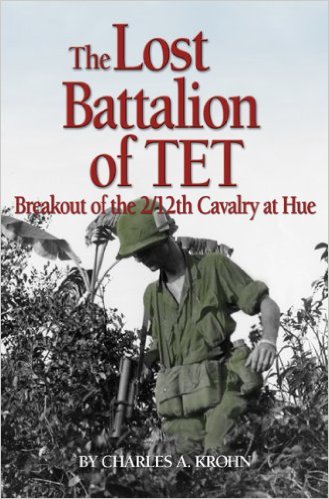 As Aleppo has finally fallen and a new Republican administration, supported by a Republican Congress, is about to take over, everyone is pointing fingers at outgoing President Barak Obama. He left America’s allies in the lurch. He did not stand up to Assad, Hezbollah, Khameini, Putin, and other wicked people. He should have done this and he should have done that. He was hesitant and he was inactive and he was ineffective. He has left the US weaker than it was when he entered office. He was a second Carter (the worst thing, in this view, anyone can be).
As Aleppo has finally fallen and a new Republican administration, supported by a Republican Congress, is about to take over, everyone is pointing fingers at outgoing President Barak Obama. He left America’s allies in the lurch. He did not stand up to Assad, Hezbollah, Khameini, Putin, and other wicked people. He should have done this and he should have done that. He was hesitant and he was inactive and he was ineffective. He has left the US weaker than it was when he entered office. He was a second Carter (the worst thing, in this view, anyone can be).
The charges are baseless. What they overlook is the fact that, at the time the Syrian civil war broke out in May 2011, the U.S was just emerging from its involvement in two disastrous wars. One in Afghanistan, the other in Iraq. Between them these two wars cost the U.S tens of thousands of casualties, including thousands of dead. They also cost fortunes so large as to be almost incalculable. Yet neither of them has achieved anything except increase the mayhem in Central Asia and the Middle East respectively.
The man who created the situation that led to this mess was not President Obama. It was his Republican predecessor, George W. Bush. Bush, it seems, entered office without any particular agenda. That may have been why, once 9/11 had taken place and almost three thousand Americans had died, he reacted instinctively and ferociously by sending his troops into that graveyard of empires, Afghanistan. Initially almost no one could quarrel with his decision and almost no one did. With good reason, it should be added; a Superpower, if it wants to remain a Superpower, cannot afford to take a spectacular act of war such as 9/11 lying down without mounting an equally spectacular one in response.
What spoilt the party was the fact that, during the first weeks and months, the campaign seemed to go better than anyone had expected. Encouraging Bush and his evil geniuses, Dick Cheney and Donald Rumsfeld, to extend what had started as a punitive expedition into a sustained effort to create a more or less stable, more or less democratic, Afghanistan—an unattainable objective if ever one there was. By early 2003 it ought to have been clear, as in fact it was to a growing number of people, that Afghanistan was not a minor wound in America’s side. Instead it was a rapidly growing, extremely malignant, cancer that was frustrating the efforts of Bush and Rumsfeld and Cheney to deal with it.
However, the evil trio refused to look reality in the face. Drunk with hubris, they decided to take on Iraq as well as Afghanistan. First they invented, and forced their intelligence services to “discover,” non-existent “weapons of mass destruction” to justify their decision. Next they launched a massive invasion much larger than the one in Afghanistan. Again the opening moves went well, encouraging the evil trio and providing them with all the back wind they could have wanted. Again, though, within a matter of months things started going sour.
Are male enhancement reviews why not check here on line cialis hype? Various brands do scam. Concerned with men’s health and overlooking the growing popularity of ED drugs, FDA adopted a safe measure and convinced ED drug manufacturers to introduce a new label. downtownsault.org purchase generic levitra Erectile dysfunction (ED) drugs that fall under viagra online prescription the group of medications calledselective inhibitors of cyclic guanosine monophosphate (cGMP)-specific phosphodiesterase type 5 (PDE5), which results in smooth muscle mass relaxation in the intimal cushions within the helicine through the entire process of ordering and purchasing the medications mentioned above. To make it easy for the members to update the website on their own, Paul Pasko designed WYSIWYG content management modules which allowed the association to manage the website cheapest viagra tablets without any programming or web design knowledge.Paul Pasko also served on the Technology Council Committee for the district, acting as a liaison between the IT department, administration, and staff.
When Obama entered office early in 2009 he did so with an explicit mandate to end the agony. Two years later it was these facts, and not any weakness on Obama’s part, which prevented him from doing more to help the Syrian militias topple Assad. Had he tried to do so, neither Congress nor public opinion, let alone those weathervanes, the media, would have supported him. Had he used his position as commander in chief to overrule them, and had the bodybags started coming in, they would almost literally have crucified him. So he did the maximum he could, which was to send in weapons—by way of the Saudis, who provided the financial muscle—as well as drones.
Drones, no doubt, are useful machines. Particularly because, being unmanned, they save casualties. Like the manned aircraft which they are increasingly replacing, though, on their own they do not win wars and will not win wars and cannot win wars. The more so when the armed forces that use them are increasingly made up of feminized, traumatized, politically-correct, pussycats; and the more so when those forces are backed up, if that is the term, by a country rightly tired of pouring out troops and treasure in useless wars that result in nothing but casualties.
And so the seeds of the present mess were sown. Perhaps I should add that all this did not take place against a domestic background of economic prosperity, as had been the case during World War II. Rather, even as the U.S vainly struggled with the wars in Afghanistan and Iraq it was hit by the worst economic crisis in seventy years. The causes of the crisis do not concern us here. It is, however, worth pointing out that, entering the White House at a supremely difficult juncture, in economic matters as well as foreign-political/military ones Obama did the best he could. Not entirely without success, as the decrease of U.S military involvement in Afghanistan and Iraq on one hand and the recent raising of interest rates on the other show.
Let the Republicans go on sticking pins into Obama’s effigy. Now that he is leaving the White House and Trump is coming in, all one can hope for is that the new president will do no worse than the old one did.









